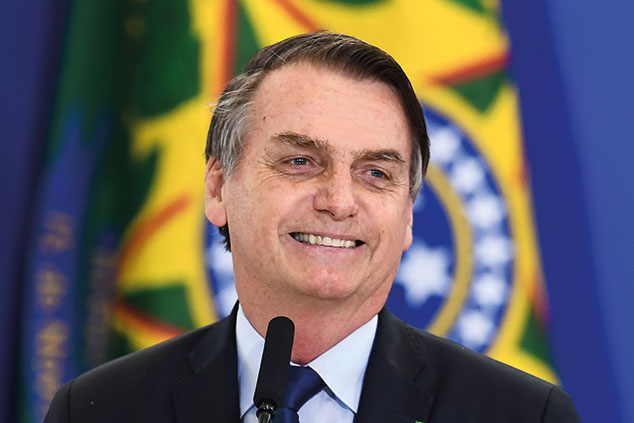
The far-right former army captain Jair Bolsonaro was “swept into office with an expansive mandate for change by voters fed up with political corruption, violence and the lingering effects of a deep recession”, say Ernesto Londoño and Letícia Casado in The New York Times. Yet just 100 days into his presidency, Brazilians are growing impatient with their new leader. His tenure has been “roiled by culture wars” and disputes among the factions that support him. Two ministers have been sacked. Bolsonaro has the lowest popularity rating of any president in his first term at this point in a tenure since democracy was restored in the mid-1980s.
He has fulfilled some campaign promises, however, says the Buenos Aires Times. He has signed a decree easing restrictions on gun ownership and privatised some state-run companies. And he has built strong ties with President Donald Trump and the Israeli president, Benjamin Netanyahu.
The problem is that his volatile behaviour has “given critics a lot of material to work with”. His proposals for fixing the country’s “costly” pension system, perhaps “his most crucial challenge”, remain “trapped” in Congress, for example.
Car Wash stalls
“Brazil can ill afford more discord,” say Simone Preissler Iglesias and Bruce Douglas for Bloomberg. Over the past three years, “one sitting president has been impeached, a former one imprisoned, and the most recent charged with corruption”. At the same time, “the economy has failed to fully recover from the worst recession on record, while years of budget deficits have pushed public debt as a portion of the economy to the highest level in over a decade and a half”. Given this, it’s encouraging that Bolsonaro has made efforts “to rebuild bridges with party leaders”.
If Bolsonaro wants to rescue his presidency, he could do worse than listen to Vice-President Hamilton Mourão, says Ishaan Tharoor in The Washington Post. Bolsonaro’s deputy, along with finance minister Paulo Guedes, has “attempted to steer governance along a more ‘normal’ track”, and both men “favour a more pragmatic approach” to various issues, especially relations with major trading partners such as China. Sadly, their “stubbornly ideological” boss seems to pay more attention to a “far right” clique of supporters around him, “who subscribe to a similar ‘anti-globalist’ worldview”.
Ironically, at the same time as Bolsonaro’s presidency is coming under pressure, Lava Jato (Car Wash), the “sprawling anti-corruption investigation” that propelled him into power, also seems to be running out of steam, says The Economist. Not only is it bitterly opposed by Congress and facing increasing scepticism from Brazil’s Supreme Court, but Bolsonaro’s own enthusiasm for further “graft-busting” is waning.
While partly due to problems with getting further measures passed, it is mainly down to the fact that Bolsonaro’s son was recently implicated in a scandal. If the investigation does run aground, this would be a shame because it has shifted public attitudes. Brazilians now see systemic corruption “as outrageous rather than inevitable”.